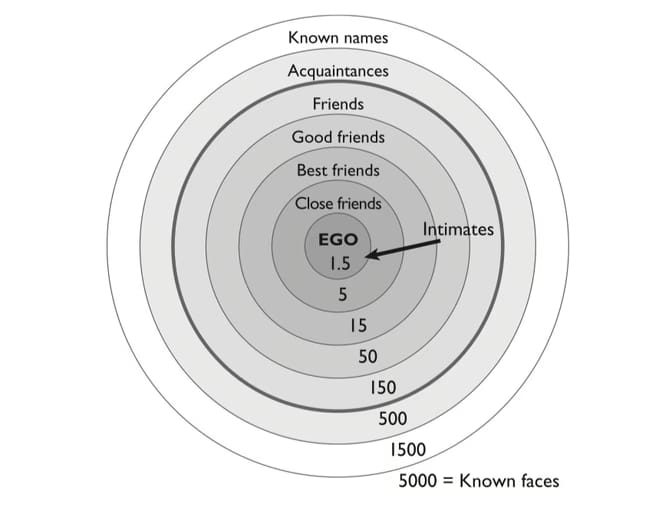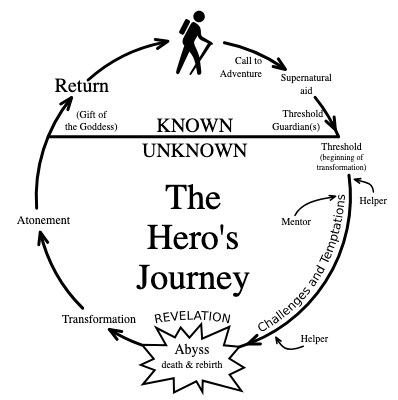- A Little More Conscious
- Posts
- Taking Care of Your Own Needs: The Social Impacts No One Talks About
Taking Care of Your Own Needs: The Social Impacts No One Talks About
8 minute read

I'm Lisa 👋 Welcome to the latest edition of A Little More Conscious! (Yes, I updated the name!)
Subscribe to join others who want to live more consciously (read: not on autopilot).
I’m trying something new! If you’d like to listen to me read this edition to you while you’re walking or doing the dishes, click on the button below.
Hey 👋
As humans we are wired for survival.
But something that I almost never hear anyone talking about that I think about a lot is how often our individual needs can conflict with group survival dynamics.
Let me give you an example.
At some point there was a discussion on Oprah about women paying attention to their needs and there was an expert interviewed and she said that one of the simplest things to do is, if you need to go to the bathroom, go to the bathroom. Doesn’t matter if you’re in a meeting at work - just go vs. suppressing the need and waiting for the meeting to be done. Because, she explained, when we suppress the signals our body is giving us to stay alive, we are causing an executive dysfunction in the nervous system. And over time, this leads to chronic mental and physical health issues.
But…what happens when what our body is telling us that we need to survive goes against what we need to fit into a group, which is, arguably equally important for survival?
Before I knew I had a connective tissue disorder, when I was younger I had a lot of signals I was getting from my body that I ignored so that I would be socially accepted.
One of my worst body-related fears was being on a road trip with my friends because I need to go #1 VERY frequently. I didn’t know at the time, but I intuitively have always been over-hydrating to increase my low blood pressure (this happens when you have extra stretchy veins and arteries). I didn’t want to have to be the one to ask to stop the car every 30 minutes. Thinking about it from their perspective, that would have been extremely frustrating and I did not want to be the one to elicit negative emotions from everyone around me. I wanted to be accepted. I wanted to belong somewhere.
So…how do we choose when we are in this situation?
Before we evolved as a species into what we are today, early humans lived in tight-knit tribes where maintaining cohesion within the group was essential for things like protection from predators, gathering food and hunting, sharing knowledge and caring for offspring.
British anthropologist Robin Dunbar studied primates and looked at brain size (specifically the neocortex or the part of the brain that is responsible for higher order functions like sensory perception, motor control, cognition, language, and also plays a role in social interactions) and based on his research, proposed that from a brain PoV there’s a cognitive limit on the number of stable social relationships we can maintain. The bigger the brain, the more people within the tribe. He proposed what is now called “Dunbar’s Number” - that humans can only manage about 150 relationships.
However, they are not equal. It’s not just about knowing 150 people - it’s about keeping track of who they are, how they relate to each other and where you stand with them. All things that are important for survival and cooperation.
Dunbar also proposed that they exist like layers of an onion with a smaller number of close friends, and a larger number of acquaintances.

Image Credit: The Atlantic
TL;DR: We are innately wired for group belonging. There’s even a substantial amount of research that shows that when we feel socially excluded it activates the same areas of the brain as physical pain.
Having an ancient biological need to be part of the gang is thought to drive behaviours like people pleasing, over-accommodation, conflict avoidance, and, you guessed it, need suppression.
Digging deeper, there are hormonal influences at play as well - when we have positive social interactions, they are capable of reducing HPA axis activity (a cascade of hormone activity initiated by the hypothalamic-pituitary-adrenal system that regulates your body’s response to stress and rise in cortisol levels). The opposite is true for negative social interactions.
Oxytocin, specifically, is a “bonding hormone” that research has found to play a pretty major role in driving “tend and defend” responses among groups, or promoting trust and cooperation within an existing group and defensiveness toward outside groups.
Why is all of this helpful context?
BECAUSE YOU’RE NOT CRAZY FOR WANTING TO SUPPRESS YOUR NEEDS TO FIT IN.
It’s an inherent part of being human. It’s chemical and neurological. It’s engrained in us.
I am in the process of working through this inherent contradiction (as I am guessing, maybe you might be too) and keep thinking about the storytelling framework “The Hero’s Journey”.

Image Credit: Wikipedia
We can replace the “call to adventure” with “awareness and acknowledgement” - about this inherent survival conflict (perhaps a different kind of adventure 😂). Accepting that you’re not broken for finding this difficult, and that it’s just how you are wired.
The threshold could be replaced with a willingness to adapt and begin to reprogram your nervous system.
Disclaimer: I am not a psychologist but these modalities are some of the things I’m working on at the moment:
Learning what your nervous system needs to feel regulated in the first place through somatic work like breathing, shaking, movement, and vagus nerve stimulation (in addition to removing stressors or removing yourself from a stressful environment, even if it’s temporary so that you can feel the difference between regulated and dysregulated).
Inner child work (Understanding how your inner child feels and core wounds/unmet emotional needs from childhood it’s dealing with on repeat like feeling abandoned. Then, holding them, letting yourself feel these emotions, validating them and comforting yourself as if you were parenting yourself).
Parts work (Awareness and understanding around how different parts of you fragmented and evolved to help “protect” your emotional wellbeing, what is driving them, and how those parts are different than your wise adult self)
Understanding what safe and trusting relationships feel like (Noticing the sensations in your body when you are in a relationship that is safe vs. unsafe. In X relationship when you are with the person, do you feel expanded? Do you feel like you can breathe normally? Or do you feel contracted and like there’s a weight on your chest or tummy or your throat is constricted?
You’ve definitely heard of the phrase “you gotta put your own oxygen mask on first” - it’s always bothered me because…what does that ACTUALLY mean? Now, I think it means doing the work above to be regulated within your own body and being able to feel safe within yourself.
In order to do these things, it also means implementing boundaries gradually to shift into more aligned situations that support you. Instead of saying no altogether to a specific plan that you know won’t make your body feel good, perhaps there are some proposals you can make to still spend time with a person or people but that fit your needs better. Like going to a restaurant that offers gluten-free options if you have celiac disease vs. not going at all. Or doing a phone call vs. meeting up in person.
The reality that has been really challenging for me to face is a lot of the time, this means knowing that in making these types of decisions and in setting some of these boundaries, not everyone in your current Dunbar’s circle is going to be okay with them.
You’re doing this, in a sense, to build a new tribe, so that you can have your needs met AND belong.
And that is really, fucking hard.
It’s the “Abyss” part of the Hero’s Journey.
My hope is that if I can make it through the abyss, I can create a more aligned life.
And maybe that inspires someone else to take steps to better align theirs.
So…cheers to being your own hero 🦸🏻♀️ and to navigating balance with your needs and social belonging.
Stuff That Stuck With Me Recently 🫠
Thanks for reading!
I hope that you enjoyed this post and it inspired you to life life a little more consciously.
Thank you for supporting me, for following along, for emailing me, and sharing your thoughts and ideas 🙏
Always open to your feedback on each edition - it helps me feel less like a robot behind a glass wall.
Here’s to navigating life off of autopilot together.
Lisa ✌️